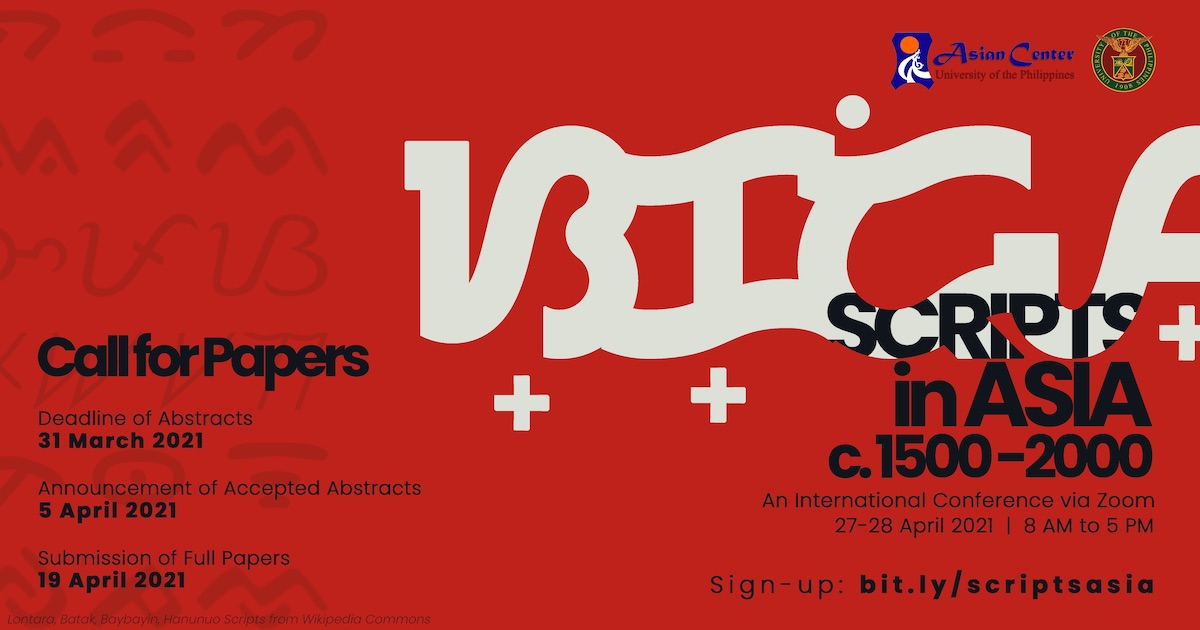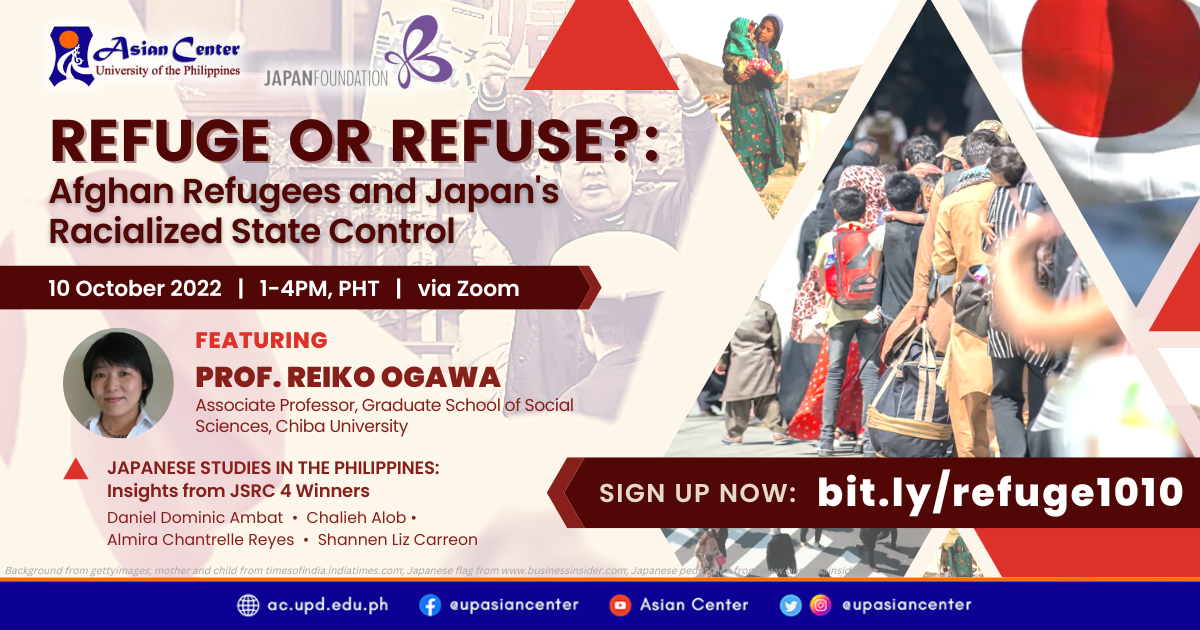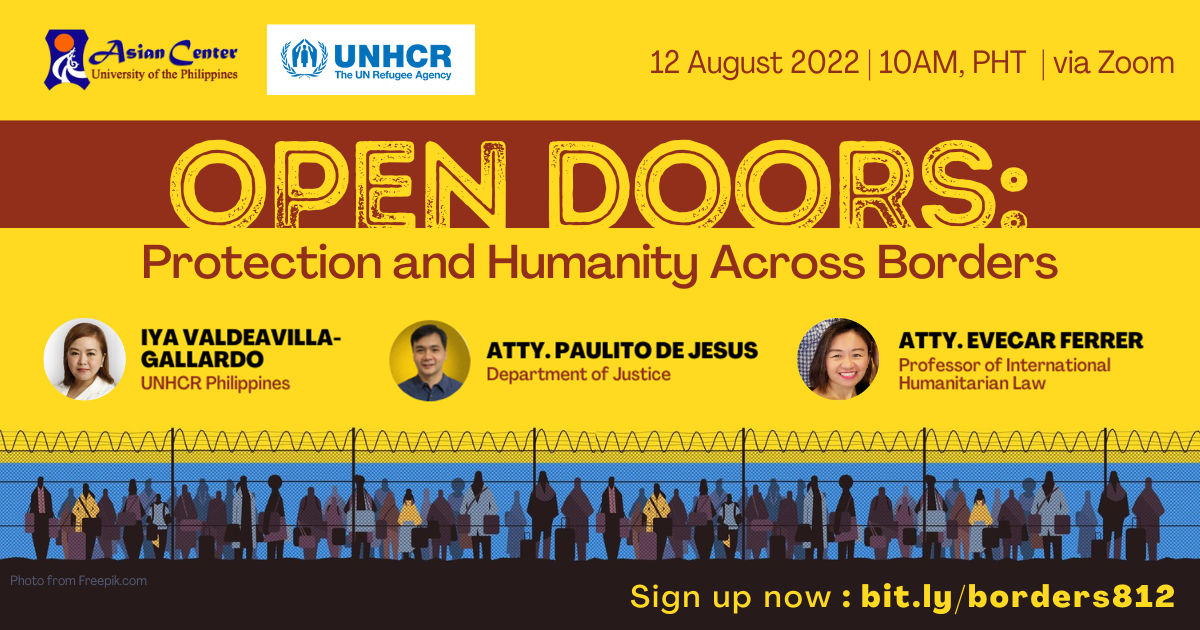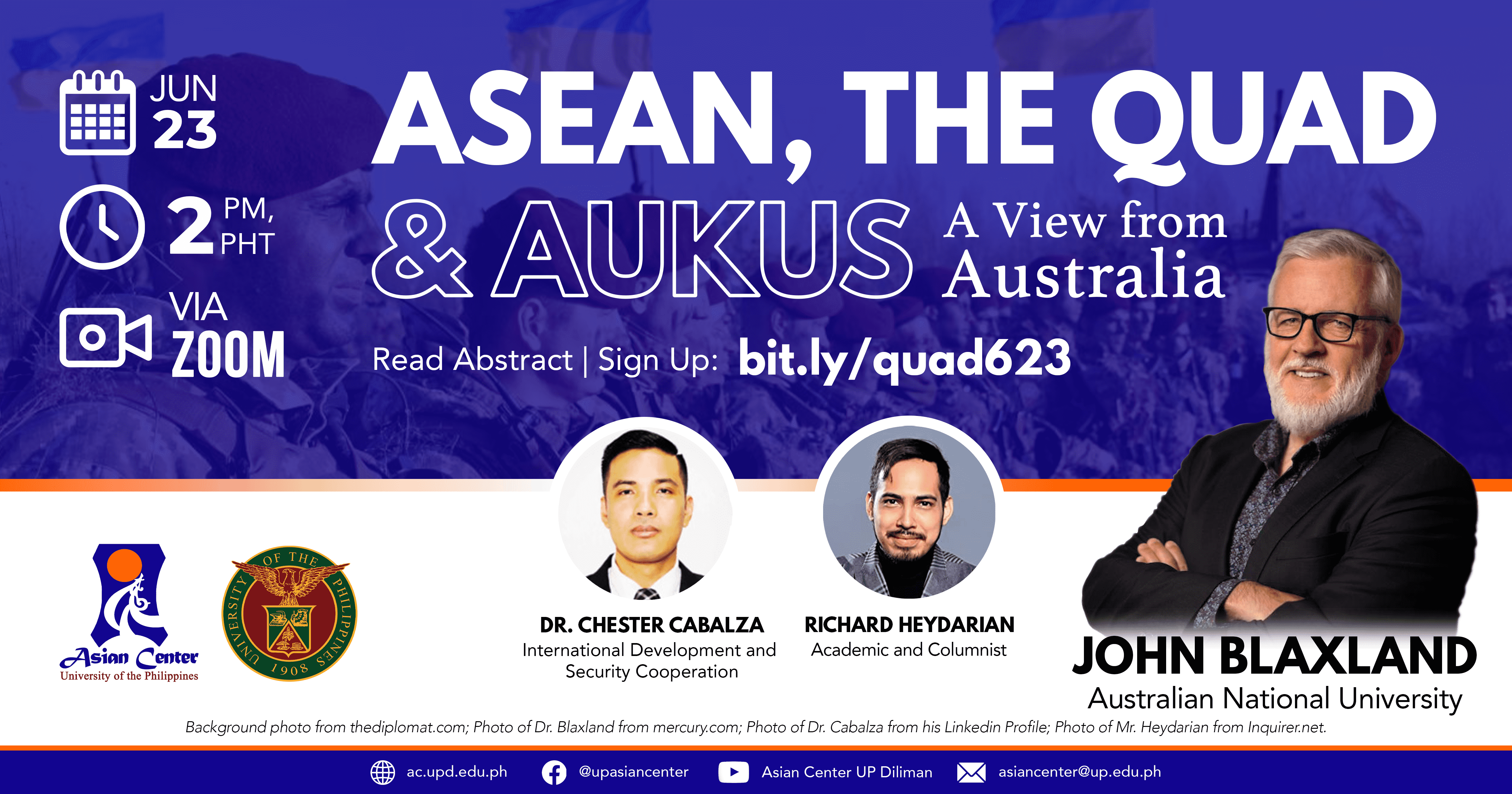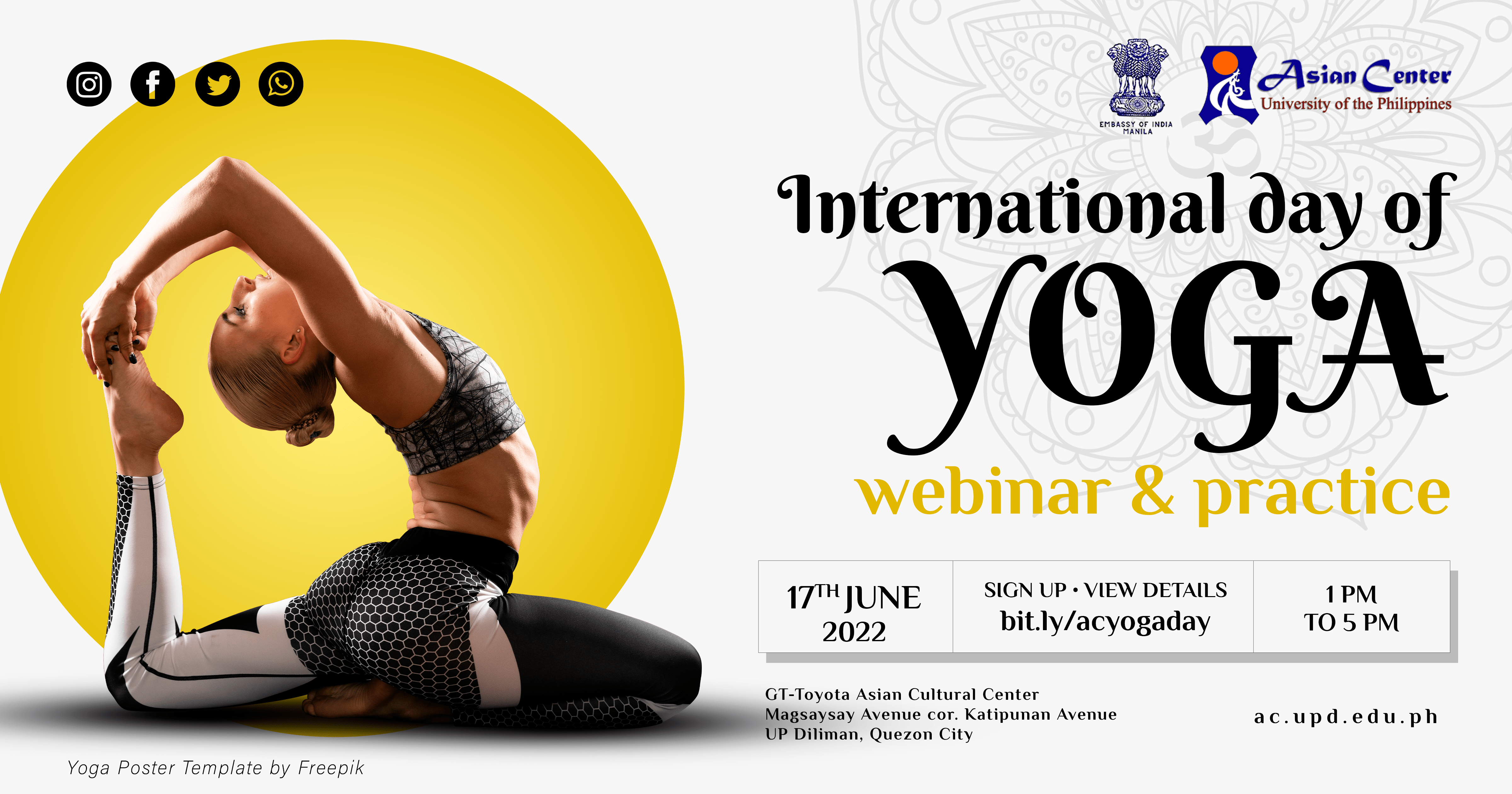The Asian Center, University of the Philippines Diliman welcomes abstracts for an international conference, "Scripts in Asia: c. 1500–2000," which will be held—via Zoom—from 27 to 28 April 2021. No submission/registration fees.
Sub-Themes
Asian religious textual and manuscript cultures |
Repositories: archives, museums, and libraries |
Scripts as artistic expressions |
Living cultural bearers |
Literary scripts and cultures |
Christian missionary education |
Sinic, Indic and Arabic writing cultures: origins and expansions |
Islamic (madrasah) literacy education |
Comparative colonial acculturation and assimilation |
Script and language extinction |
Cultural nationalism and imperialism |
Language and script renewal movements |
Western education in Asia |
Colonial and postcolonial language/script policy |
Keynote Lecture (s)/Speakers
The Many Paths from Sound to Sign in Island Southeast Asia
Campbell Macknight, Honorary Professor, College of Asia and the Pacific, The Australian National University
Mulaika Hijjas
School of Oriental and African Studies, University of London
Deadlines and Dates to Remember
-
31 March 2021: Submission of abstract via Submission Form
-
5 April 2021: Notification of acceptance
-
19 April 2021: Submission of Full Paper
How to Submit and About the Conference
Visit the conference webpage to view submission guidelines, presentation format, etc.
The European arrival in Asia in the 16th century was a turning point not only in the political trajectories but also in the writing traditions of Asian states and societies. In maritime Southeast Asia for instance, indigenous literacy in Indic-derived scripts was long widespread in societies such as the Batak (si-sia-sia script), Tagalog (baybayin) and Bugis (lontara). However, increasing European influence occuring alongside Islamization engendered the transition to Latin or Jawi (Arabic-derived) scripts.
Organized by the UP Asian Center, this conference intends to explore the impact of European presence in the various writing traditions of Asia. In what ways were certain languages and especially scripts privileged by colonial states? How is the transition from one writing script to the other reflected in the sources? How do postcolonial societies across Asia view or instrumentalize their varied epigraphical, textual, and codicological traditions?
The UP Asian Center offers M.A. degrees in Asian Studies with four fields of specialization: Northeast Asia, Southeast Asia, South Asia, and West Asia. The Center also has an M.A. program in Philippine Studies that allows students to major in Philippine society and culture, Philippine foreign relations, or Philippine development studies. The Center offers a Ph.D. program in Philippine Studies in conjunction with the College of Arts and Letters and the College of Social Sciences and Philosophy. For an overview of these graduate programs, click here. The Asian Center also publishes Asian Studies: Journal of Critical Perspectives on Asia, the latest issue of which can be downloaded at the journal's website. For other news and upcoming events at the Asian Center, click here.


